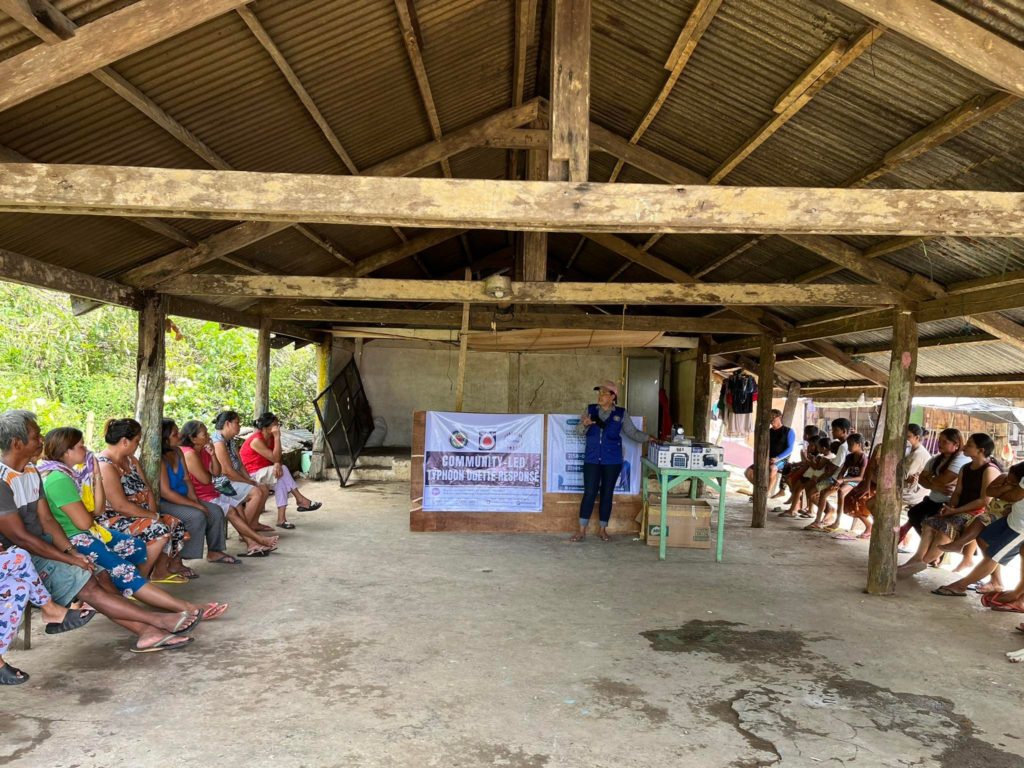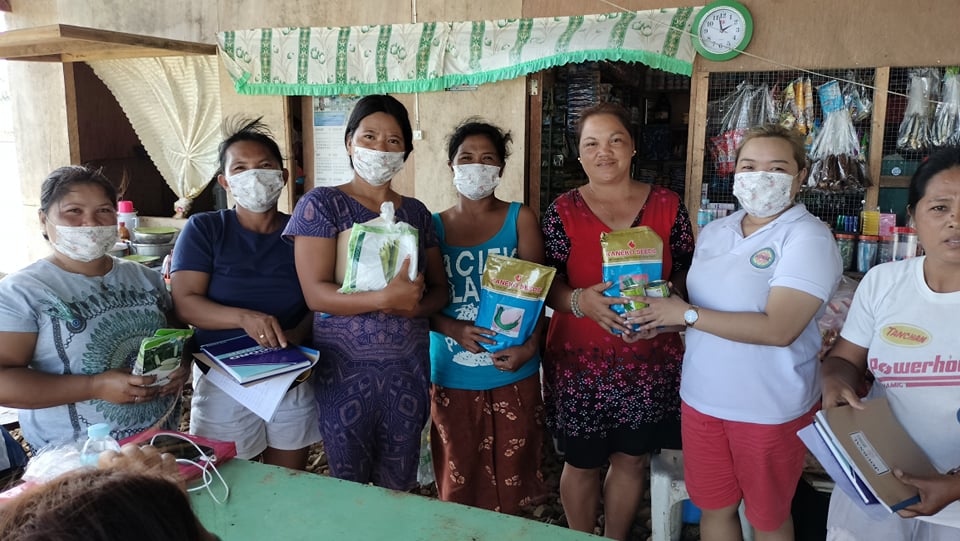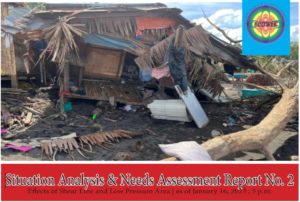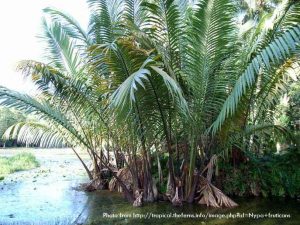Capturing learning from a Typhoon Odette Community-led Humanitarian Action

Sitio Uba, Barangay San Carlos, Dapa, Surigao del Norte
At night, when standing on top of a hill in Ayotay, across the Dapa Channel, the Bucas Grande group of islands is all but darkness except for a tiny strip called Sitio Uba. There is a line of solar lamps that from afar looks like equidistant from each other. Those lights guide the fisherman as they go home at night.
This was intentional. The community, upon receiving the solar lamps from Latter Day Saints thru ECOWEB, did not follow the vulnerability scoring to choose the beneficiaries. They measured distances from house to house, so that a solar lamp can enlighten the house on the left and on the right.
As community-led response goes, Uba is model of innovation and intuition. ECOWEB has been documenting and coaching, but the decisions are there, even if many of them fell short in humanitarian standards.
When asked to recall their Typhoon Rai/Odette experience last December 16, 2021, they remember it vividly.
We were stripped naked. Gihukasan.
This was the word used by Kagawad Remalyn Consigna when asked to describe her experience of typhoon Rai/Odette. This was partly literal. Many of them were undressed as they fought the fierce wind and the waves. But of course, they really meant they lost everything they owned. That was what they wanted to say, all the leaders who represented 40 families.
She lost three houses and several boats. She also lost two Jetskis which used to be rented by celebrities and foreign tourists. Her business was the focal economic activity of this fishing village, and when she lost it, the village shared her pain.
“I lost a total of three million pesos”, she said. She was a successful businesswoman. That much you can deduce not only because of her influence in the community, but also because of the speed in which she was able to start a new sarisari store. As a focus group discussion was being held, her husband was supervising the construction of a new fishing vessel, a very large one.
“Petron loaned me the money to start anew.” She said, smiling but with an unmistakable sadness in her eyes. She said her story was sad but inspiring. Her bedroom is also her kitchen now.
Her story is also the story of Sitio Uba, San Carlos, Dapa, Surigao del Norte.
She started small. How she moved from vendor of vinegar to own two jet skis is a product of hardwork and determination.
Sitio Uba is like that – a product of hard work. This is not ideal place for a village. There is only a few meters of flat land between the sea and the mountain. People built their homes and businesses on piles of coral rocks.
Closer to sea, the water is their risk; near the mountain, their risk is a landslide. “We prefer the waves. We can try to swim or float. Buried under a landslide, we will not survive.” Kagawad Remalyn said. The intuition to survive is clear among these fisherfolks.
Yes, they are aware and have been informed again and again by government agencies that this strip of land is not suitable for human settlement. “But where will we go? These are our neighbors and friends already. We can’t just separate and look for our own place.” Kagawad asserted.
“We will help each other survive,” said the chorus of four women leaders whose group names reflect their sense of humor: Shanghai, Odette, Survivor, and Bangon Uba.
So, when the Community Led Response asked them to plan and decide on where the 100,000 pesos cash grant will go, they opted for a piggery project. But they don’t have space for a piggery. Simple, their solution is to build a cage in their kitchen right above the water.
It is a sanitation risk, yes. The waste of the pigs goes directly into the water where their children sometime swim. But the people of Uba have not been dealt with the best of circumstances. They have to calculate together which ones are riskier.
“The other option is to go hungry. That piggery will solve so many concerns for this family,” Kagawad Remailyn remarked.
The pigs are getting bigger now, and there is so much excitement in planning what to do next after selling the meat.
“Makawala ug kaguol.” This project drives away our sorrows, it makes us more active and hopeful. One mother said whose bed is two meters away from the pigpen. One mother remarked that she has to make sure she doesn’t mistake the pig for her husband, especially in the dark.
Laughter is restored in this village. The rest will follow.








